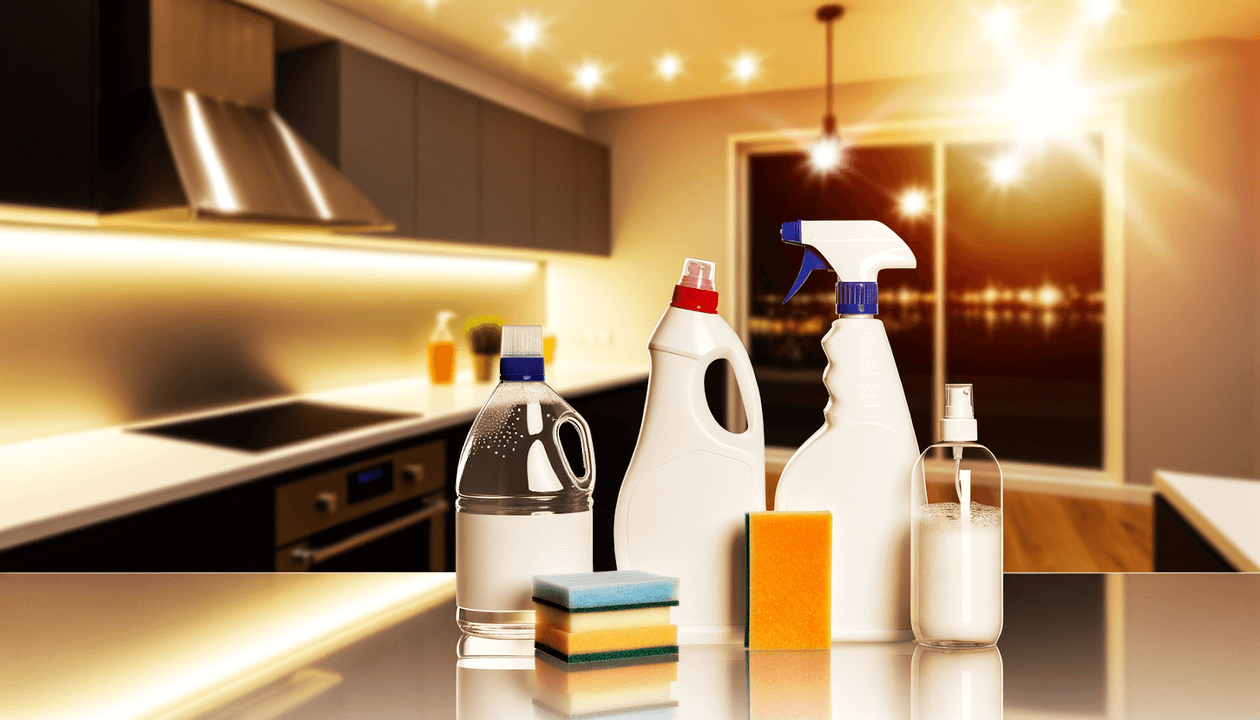
How to Avoid Overusing Cleaning Chemicals and Protect Your Surfaces
G'day, folks! If you’re finding streaks on your benchtops or scratches on your hardwood floors, it might be time to rethink how you’re using your cleaning chemical supplies. While these products are essential for keeping your home spick and span, using them incorrectly can cause more harm than good. Today, we’ll dive into why it’s crucial to use these chemicals wisely and some top tips to protect your surfaces.
Understanding Cleaning Chemical Supplies
First things first, let's break down what cleaning chemical supplies actually are. These are the products you grab when you’re wanting to make your space look schmick. They cover everything from general-purpose cleaners to specialty products designed for specific areas like kitchens or bathrooms. It’s important to know what’s in your cleaning arsenal and how each product should be used safely.
Types of Cleaning Products
General-Purpose Cleaners
These beauties are the jack-of-all-trades in your cleaning cupboard. All-purpose cleaners can be used on a bunch of surfaces around your home—from the splashback in your kitchen to the tiles in your bathroom. They're usually formulated to tackle an array of grime and germs.
Specialty Cleaners
- Kitchen Cleaners: Need to tackle greasy stovetops or shiny stainless steel? Look for specialty kitchen cleaners.
- Bathroom Cleaners: To handle toilets and those pesky grout lines.
- Floor Care Products: These range from carpet sprays to hardwood soap.
- Furniture Cleaners: Products like furniture polish or wood polish fall into this bracket.
Ingredients in Cleaning Products: What You Need to Know
The ingredients in these supplies can vary widely, each serving unique purposes—from cutting through grease to tackling calcium buildup. Understanding these will help you choose the right product and use it effectively.
Abrasives
These little bits work by physically scrubbing away dirt. While they’re great for tough jobs, they can be too harsh for soft surfaces if used too forcefully. Just remember, when it comes to abrasives, gentle is often better.
Acids & Alkalies
Acids like vinegar are gentle enough for general cleaning but effective at removing deposits. Alkalies like baking soda are great for decomposing grease. Both should be used according to instructions to avoid damaging surfaces.
Bleaches, Detergents & Solvents
Bleaches are powerful, often containing chlorine for whitening and disinfecting. Detergents help lift grime away. As for solvents, they’re typically found in polishes and help break down oils and grease.
Top Tips to Avoid Overusing Your Cleaning Supplies
Read and Follow Instructions
The first step in not overusing cleaners is to actually read the back of the bottle. Sounds simple enough, doesn’t it? But many people either skip this step or skim past vital information. Every cleaning product is different, so take a moment to read how much you actually need to use.
Measure Your Usage
If the instructions call for a capful, don’t glug in half the bottle expecting better results. More isn’t always merrier when it comes to chemicals! Using too much can damage surfaces and even impact floor finishes or appliances like dishwashers.
Choose the Right Product for the Job
Using the correct product for the specific chore is essential. You wouldn’t use a bathroom cleaner on your kitchen floor, would you? Opt for what the task requires to avoid unnecessary wear and tear on your surfaces.
Avoid Mixing Products
Mixing two different cleaning products might seem like a power move, but it could produce harmful fumes or cause surface damage. Stick with one at a time unless otherwise stated safe by the product’s instructions.
Homemade Solutions and Natural Alternatives
If you’re looking to cut down on chemical use altogether, consider making your own cleaners at home. Simple ingredients like vinegar, lemon juice, and baking soda can be extremely effective for everyday cleaning and safer for you and the environment.
Simple DIY Cleaner Recipe: The All-Rounder
Combine equal parts white vinegar and water in a spray bottle, add a squeeze of lemon for fragrance, and voilà! You’ve got a natural cleaner fit for most surfaces.
Storage and Handling
Make sure you store your cleaning chemical supplies safely, away from kids and pets, and in a cool, dry place. Leaking bottles not only waste product but can pose a health risk if they're not stored properly.
Conclusion: Better Safe Than Sorry!
In conclusion, while cleaning chemical supplies are an absolute necessity for maintaining a fresh and hygienic living space, how we use them can greatly impact not only the cleanliness of our home but its longevity, too. Use wisely and your surfaces will thank you for it. Make sure you choose the right products, use the correct amount, and follow all instructions to keep your home not just clean, but also safe.
Thanks for sticking with me through this little cleaning adventure. So next time you grab a bottle from your stash, you’ll know exactly what to do and what not to do, ensuring your home stays in top-notch shape. Happy cleaning!
